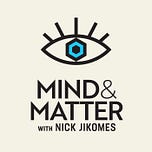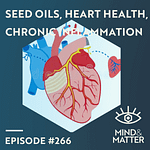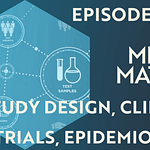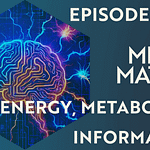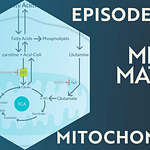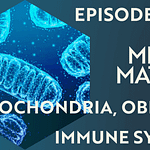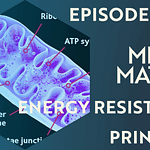Wide release date: August 13, 2025
Episode Summary: Dr. Giovanni Marsicano is a neuroscientist based in Bordeaux, France, where he leads a research group at INSERM focusing on the endocannabinoid system.
About the guest: Giovanni Marsicano, PhD discusses the endocannabinoid system, starting with its core components like CB1 receptors and lipid-based molecules such as anandamide and 2-AG, derived from omega-6 fatty acids; he explains its cellular signaling, evolutionary role in energy storage for uncertain futures (exostasis vs. homeostasis), and effects across tissues like the liver, gut, and brain, including motivation, appetite, pain relief, and anxiety regulation, while touching on biphasic effects of cannabinoids.
Discussion Points:
The endocannabinoid system acts as an "exostatic" regulator, promoting energy accumulation for future needs by enhancing food palatability, nutrient absorption, and fat storage, unlike "endostatic" systems that address immediate hunger.
CB1 receptors appear in vertebrates with adipose tissue, suggesting an evolutionary link to storing fat for survival in unstable environments.
Endocannabinoids are lipids from omega-6 fats; high intake boosts their levels, potentially fueling obesity by creating a self-perpetuating cycle of overeating.
Activation of CB1 can have biphasic effects (e.g., low doses reduce anxiety, high doses increase it), due to receptors on different cell types like excitatory vs. inhibitory neurons.
Pregnenolone, a steroid precursor, acts as a natural CB1 inhibitor to prevent excessive activation, blocking harmful effects like psychosis from high THC doses.
The system influences motivation beyond food, including sex and even human activities like sports or storytelling, by rewarding actions for potential future benefits.
In the brain, CB1 on mitochondria and astrocytes modulates energy use, olfaction, and social stress transmission, with implications for disorders like Alzheimer's.
Reference Paper:
Related episode:
M&M 123: Endocannabinoids, Stress, Exercise, Cortisol, Anxiety, Cannabis & Effects of Marijuana on Brain Development | Matthew Hill
*Not medical advice.
Full video version: [YouTube]
Support M&M if you find value in this content.
Episode transcript below.
Episode Chapters:
00:00:00 Intro
00:05:01 CB1 Receptor Overview
00:10:58 Endocannabinoids & Lipids
00:16:00 CB1 as GPCR
00:21:04 Mitochondrial Signaling
00:26:09 Biphasic Effects
00:31:13 Homeostasis & Energy
00:37:40 Unstable Environments
00:43:59 ECS as Exostatic
00:50:13 Cue-Induced Feeding
00:55:00 Gut & Glucose Effects
01:00:32 Omega-6 Link
01:07:02 Pregnenolone Inhibitor
01:12:05 Modulation Mechanisms
01:17:03 Clinical Applications
01:22:15 Exostatic Coordination
01:26:19 Rewards Beyond Food
01:31:39 Cultural Motivations
01:36:43 Current Lab Work
01:42:12 Final Thoughts
Full AI-generated transcript below. Beware of typos & mistranslations!
Listen to this episode with a 7-day free trial
Subscribe to Mind & Matter to listen to this post and get 7 days of free access to the full post archives.


